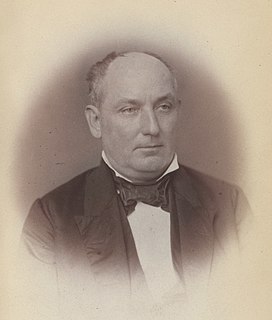A Quote by Guy Debord
The more powerful the class, the more it claims not to exist, and its power is employed above all to enforce this claim. It is modest only on this one point, however, because this officially nonexistent bureaucracy simultaneously attributes the crowning achievements of history to its own infallible leadership. Though its existence is everywhere in evidence, the bureaucracy must be invisible as a class. As a result, all social life becomes insane.
Quote Topics
Above
Achievements
Attributes
Because
Becomes
Bureaucracy
Claim
Claims
Class
Crowning
Employed
Enforce
Everywhere
Evidence
Exist
Existence
History
However
Infallible
Insane
Invisible
Leadership
Life
Modest
More
More Power
Must
Nonexistent
Officially
Only
Own
Point
Power
Powerful
Result
Simultaneously
Social
Social Life
Though
Related Quotes
Governments, if they endure, always tend increasingly toward aristocratic forms. No government in history has been known to evade this pattern. And as the aristocracy develops, government tends more and more to act exclusively in the interests of the ruling class -- whether that class be hereditary royalty, oligarchs of financial empires, or entrenched bureaucracy.
I imagine a school system that recognizes learning is natural, that a love of learning is normal, and that real learning is passionate learning. A school curriculum that values questions above answers...creativity above fact regurgitation...individuality above conformity.. and excellence above standardized performance..... And we must reject all notions of 'reform' that serve up more of the same: more testing, more 'standards', more uniformity, more conformity, more bureaucracy.
The People's democratic dictatorship needs the leadership of the working class. For it is only the working class that is most far-sighted, most selfless and most thoroughly revolutionary. The entire history of revolution proves that without the leadership of the working class revolution fails and that with the leadership of the working class revolution triumphs.
In all social systems there must be a class to do the menial duties, to perform the drudgery of life. That is, a class requiring but a low order of intellect and but little skill. Its requisites are vigor, docility, fidelity. Such a class you must have, or you would not have that other class which leads progress, civilization, and refinement.
Though it is disguised by the illusion that a bureaucracy accountable to a majority of voters, and susceptible to the pressure of organized minorities, is not exercising compulsion, it is evident that the more varied and comprehensive the regulation becomes, the more the state becomes a despotic power as against the individual. For the fragment of control over the government which he exercises through his vote is in no effective sense proportionate to the authority exercised over him by the government.
It is in Rousseau's writing above all that history begins to turn from upper-class honour to middle-class humanitarianism. Pity, sympathy and compassion lie at the centre of his moral vision. Values associated with the feminine begin to infiltrate social existence as a whole, rather than being confined to the domestic sphere.
The dominant, almost general, idea of revolution - particularly the Socialist idea - is that revolution is a violent change of social conditions through which one social class, the working class, becomes dominant over another class, the capitalist class. It is the conception of a purely physical change, and as such it involves only political scene shifting and institutional rearrangements
Sociological method as we practice it rests wholly on the basic principle that social facts must be studied as things, that is, as realities external to the individual. There is no principle for which we have received more criticism; but none is more fundamental. Indubitably for sociology to be possible, it must above all have an object all its own. It must take cognizance of a reality which is not in the domain of other sciences... there can be no sociology unless societies exist, and that societies cannot exist if there are only individuals.
When the Democrats are attacked for [inciting class warfare] they shrink back. They don't say what obviously should be said, "Yes, there is class warfare. There has always been class warfare in this country." The reason the Democrats shrink back is because the Democrats and the Republicans are on the same side of the class war. They have slightly different takes. The Democrats are part of the upper class that is more willing to make concessions to the lower class in order to maintain their power.
I think success has a downside. The more successful you get and the more out there you are in the world, the more vulnerable you are and the more you are open to hate, especially because of social media. But it also depends what you class as success, because someone could do something mean and class that as success for them. But for me, if you're doing something positive that's allowing someone to have a better wellbeing, or embrace their life more, you have to go for it, but know there's always going to be people who hate on you for doing what you're doing.
Perhaps I had better inform my Protestant readers that the famous Dogma of Papal Infallibility is by far the most modest pretension of the kind in existence. Compared with our infallible democracies, our infallible medical councils, our infallible astronomers, our infallible judges, and our infallible parliaments, the Pope is on his knees in the dust confessing his ignorance before the throne of God, asking only that as to certain historical matters on which he has clearly more sources of information open to him than anyone else his decision shall be taken as final.
...it was always our view that in order to attain this [proletarian revolution] and the other far more important aims of the future social revolution, the working class must first take possession of the organised political power of the state and by its aid crush the resistance of the capitalist class and organise society anew.




































